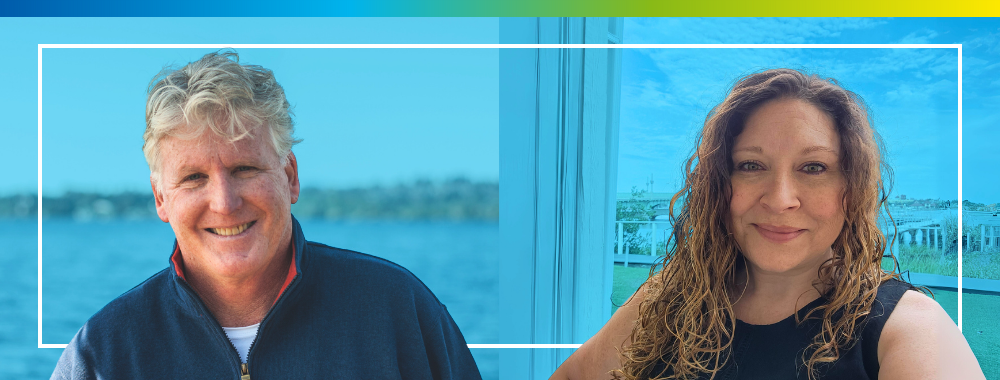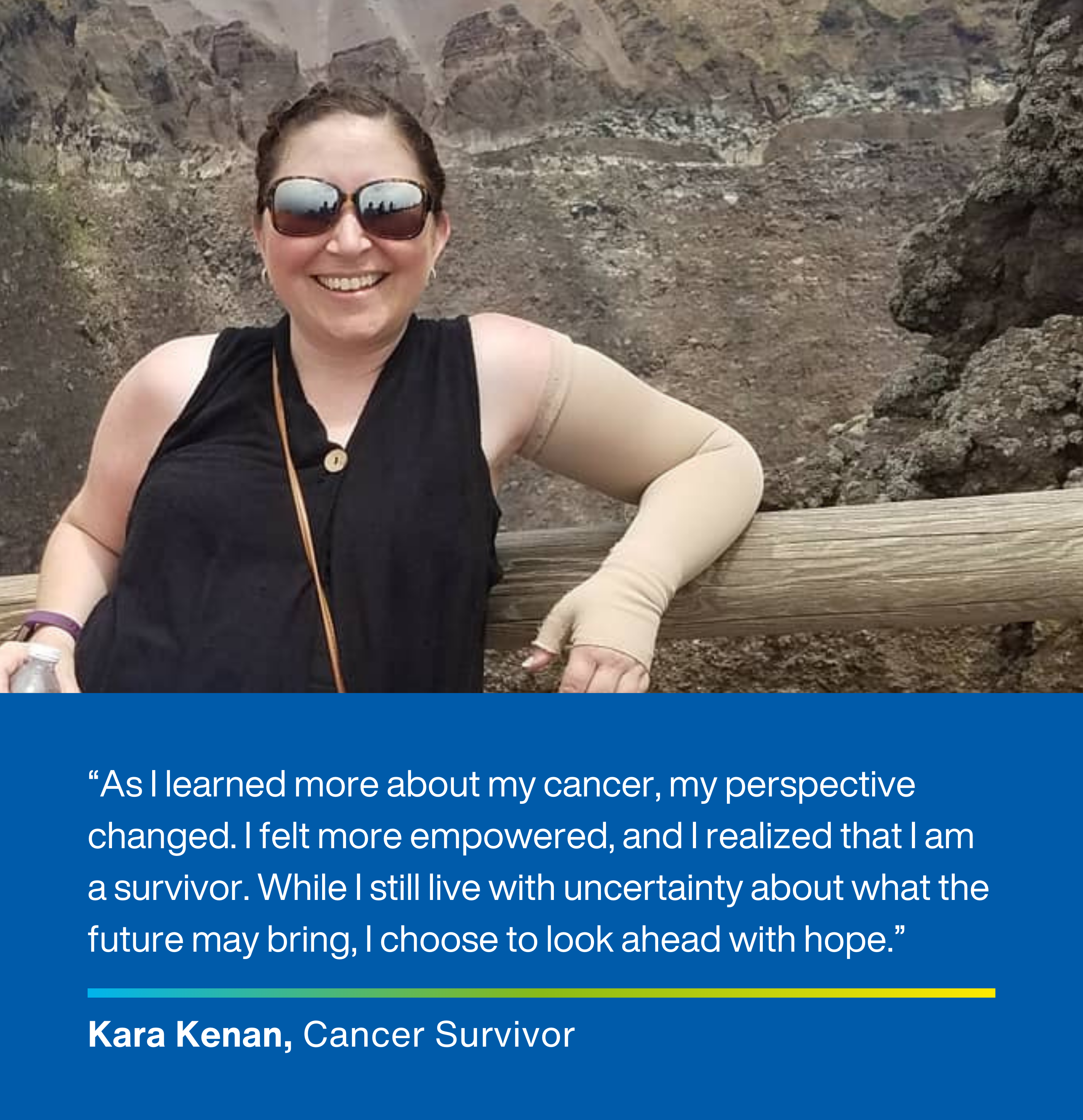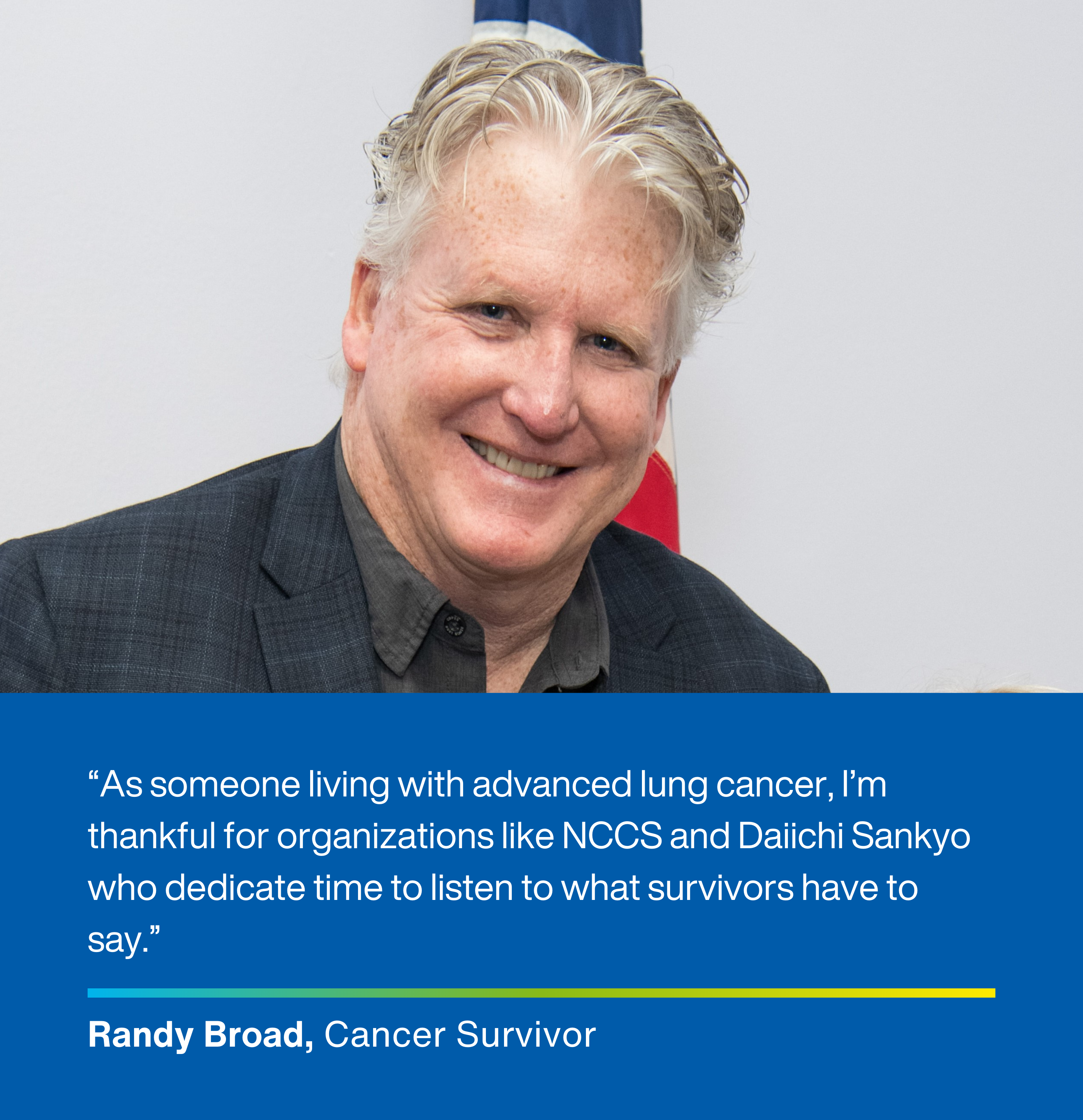
Kara was 35 when she was diagnosed with breast cancer. At the time, she was newly married with a 4-year-old daughter at home. Kara remembers feeling blindsided, completely overwhelmed and scared. “My diagnosis came as a shock and at first, I didn’t know what to expect, which was difficult. As I learned more about my cancer, my perspective changed. I felt more empowered, and I realized that I am a survivor. While I still live with uncertainty about what the future may bring, I choose to look ahead with hope.”

Kara is one of the 18 million Americans diagnosed with cancer who, thanks to transformational advances in research, treatment and early detection, is living longer and with an improved quality of life following her diagnosis.
With a growing community of survivors also comes a different set of challenges that needs to be considered. Life after a cancer diagnosis often presents physical, emotional and financial challenges for survivors that can affect their overall well-being. Sometimes the burden of these impacts can be as heavy as the disease itself.
At Daiichi Sankyo, we believe that protecting the well-being of survivors during and after their cancer therapy is just as important as delivering innovative medicines to treat their disease. To help support survivors who are navigating life during and after cancer, we work closely with organizations like the National Coalition for Cancer Survivorship (NCCS).
Partnering to Drive Change
Long at the forefront of survivorship advocacy, the NCCS was founded in 1986 to support people living with, through and beyond a cancer diagnosis. Daiichi Sankyo works with NCCS to better understand the unique needs of survivors and deliver resources that can make meaningful differences.
“Survivors are often coping with many complex issues all at once—psychosocial needs, physical limitations, impacts on work and family—and sometimes these needs are overlooked or misunderstood,” said Elena Jeannotte, Vice President, External Relations, NCCS. “At NCCS, we take time to listen to survivors and their families so we can translate their needs into action. One of the ways we do this is by working with organizations like Daiichi Sankyo to bring survivors, policymakers and healthcare providers together in our Cancer Policy Roundtables to identify gaps and discuss ways to help improve survivors’ quality of care and quality of life.”

Change Starts with Conversations
In previous Cancer Policy Roundtables, participants have discussed a variety of pressing needs, including how to reduce disparities in cancer care, best support people with advanced or metastatic cancers, improve access and help navigate the many services available. To address these and other needs, it will take the combined efforts of those across government, healthcare, advocacy and industry working together, and Daiichi Sankyo is committed to these efforts. We will continue to raise the voices of patients, survivors and their families, and partner with organizations like NCCS to ensure they are heard on a broader scale.
Enacting systemic change takes time, but these efforts can also lead to shorter-term solutions, like practical materials to help patients manage day-to-day life with cancer. One example to emerge from conversations with survivors is NCCS’ Survivorship Checklist, which helps individuals self-advocate for quality care.
“As someone living with advanced lung cancer, I’m thankful for organizations like NCCS and Daiichi Sankyo who dedicate time to listen to what survivors have to say,” said Randy Broad. “This is a disease that can be hard to live with—as the physical, mental and financial impacts can really add up. But when survivors like me are given an opportunity to share our experiences and talk about what we need, we feel supported and, equally important, it leads to solutions that ease our burdens.”
To keep driving progress for people living with cancer, we must continue listening to survivors and collaborating to enact impactful solutions. Daiichi Sankyo will continue to do both, for as long as it takes, so people like Kara and Randy have the support and resources they need to take on their disease.
For more information and resources for cancer survivors, and to learn how you can get involved in advocating for those living with cancer, please visit the National Coalition for Cancer Survivorship website.
Suggestions
While our lungs support our very existence, we often don’t recognize that something isn’t quite right with our lung health. Get answers to questions about lung cancer and listen to empowered patients...
Growing up in a Spanish-speaking home, I was the family translator—a role that became particularly challenging when my mother was diagnosed with breast cancer. My family relied on me…
Each patient journey is unique for those faced with a breast cancer diagnosis. At Daiichi Sankyo, we strive to deepen our understanding beyond the scientific aspects, distinguishing between the personal needs of patients with early-stage versus metastatic breast cancer.